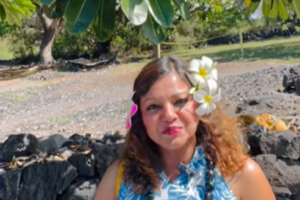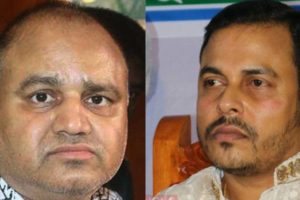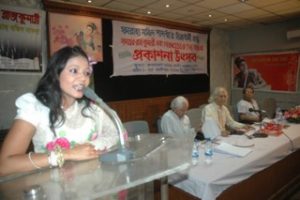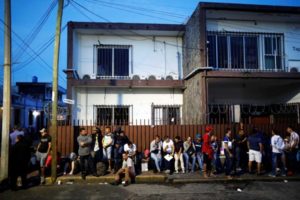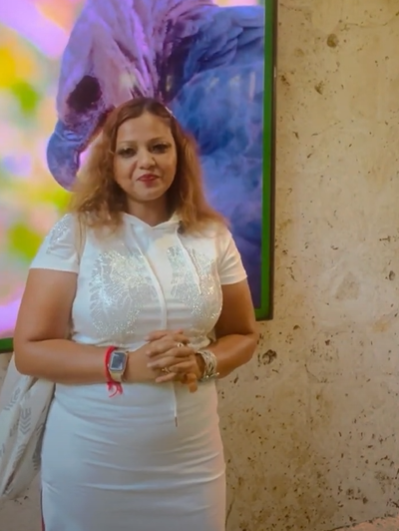Brazil’s president, Jair Bolsonaro, was visiting a cathedral in the capital in recent days when a reporter threw out a question: President, why did your wife receive $16,000 from a former aide under investigation for corruption?
The response was aggressive, even for a president known for venting his anger at journalists and critics.
“What I’d like to do,” Bolsonaro told the reporter, “is smash your mouth in.”
In his two years in office, as Bolsonaro and his inner circle, including his sons, have become engulfed in a growing number of criminal and legislative investigations, he has lashed out at reporters, investigators and even members of his own Cabinet who have dared go against him.
But the case involving the former aide and family confidant — which revolves around the potential theft of public sector wages — has particularly rattled Bolsonaro’s nerves by putting his wife and his oldest son at the centre of a corruption investigation that has developed into one of his biggest personal and political liabilities.
The expanding set of inquiries into the president and his family are testing the independence and strength of the justice system in one of the world’s largest democracies, with the largest economy in the southern hemisphere. Just a few years ago, Brazil’s judiciary earned global accolades for taking down powerful officials and business titans in an anti-corruption crusade that upended the political establishment.
Now Bolsonaro, whose astonishing rise from the fringes of far-right politics to the presidency was largely propelled by a promise to root out graft and crime, stands accused of undermining the rule of law, as the scandals inch ever closer to the presidential palace.
Experts say the evidence that has come to light so far in the case of the former aide, Fabrício Queiroz, suggests the Bolsonaro family partook in a scheme known as rachadinha, which is common in the lower rungs of politics in Brazil. It involves siphoning taxpayer money by keeping ghost employees on payroll or hiring people who agree to kick back a share of their salary to the boss.
“The suspicion is that this was a family business that lasted many years and moved a lot of money,” Bruno Brandão, executive director of Transparency International in Brazil, said of the graft scheme involving the former aide. “These suppositions are very serious, corroborated by solid evidence, in an investigation that is based on highly irregular financial transactions.”
In court filings and leaks to the press, authorities have outlined their suspicion that starting in 2007, Queiroz helped the president’s oldest son, Flávio Bolsonaro, steal public funds by pocketing part of the wages of people on his payroll when he was a state representative. Flávio Bolsonaro was elected to the Senate in 2018.
Between 2011 and 2016, Queiroz funnelled thousands of dollars to the president’s wife, Michelle Bolsonaro, in transactions neither of them can explain. Prosecutors also believe deposits made to the president’s son might be connected to the scheme.
Drawing on a vast dossier of financial records, investigators are trying to determine whether the irregular cash flow at a chocolate shop Flávio Bolsonaro bought in 2015, and a series of real estate purchases he made in cash, amount to money laundering.
Separately, a Brazilian newspaper uncovered that one of Queiroz’s daughters, Nathália Queiroz, was on the payroll of the president’s former congressional office in Brasília between 2016 and 2018, even though she was working as a personal trainer in Rio de Janeiro at the time.
Bank records obtained by prosecutors show that Queiroz made monthly payments to her father that totalled tens of thousands of dollars between 2017 and 2018.
The president’s office declined to comment on the case on behalf of Jair Bolsonaro and his wife. Michelle Bolsonaro met her husband in 2006 while she was working as a secretary in Congress. After the two began dating, she joined his legislative staff, a move that tripled her salary.
Paulo Emílio Catta Preta, a lawyer representing Queiroz, said the transactions involving the Bolsonaro family “have absolutely nothing to do with alleged misappropriation of funds.” Flávio Bolsonaro’s attorney did not respond to a request for interviews.
In a recent interview, Vice President Hamilton Mourão defended the administration’s record on corruption, noting that it has not been embroiled in the type of multimillion-dollar kickback schemes uncovered during previous governments. He deplored the leaking to the press of so much information about the Queiroz investigation, arguing that there is an effort underway to “fabricate a narrative for public opinion.”
The investigation began taking shape shortly after Bolsonaro’s decisive electoral victory in October 2018. He beat a leftist party whose enormous popularity crumbled as its leaders were charged in kickback schemes involving large government contracts and transnational business deals.
Shortly after the election, prosecutors in Rio de Janeiro noted that Queiroz’s bank activity in 2016 and 2017, while he was on Flávio Bolsonaro’s payroll, was incompatible with his reported earnings.
Since then, other legislative and criminal investigations have put the Bolsonaro family on the defensive.
Another of the president’s sons, Carlos Bolsonaro, is being investigated on similar charges of diverting public funds during his time as a City Council member in Rio de Janeiro and in connection with a case about disinformation campaigns waged online. A third son, Eduardo Bolsonaro, is also involved in the disinformation case.
As criminal and legislative investigations entangled people close to the president, his government led or backed efforts that have weakened the hand of anti-corruption prosecutors. They included making it harder for investigators to obtain bank records to build criminal cases. A new law subjects prosecutors to punishments including fines and criminal charges for misconduct.
Those actions contributed to the dramatic exit of Jair Bolsonaro’s most popular Cabinet member, Sergio Moro, who in April accused the president of seeking to replace the head of the federal police in order to shield friends and relatives from criminal investigations.
The Supreme Court is investigating whether the president’s conduct amounted to obstruction of justice.
The events surrounding the exit of Moro, a former federal judge who had become the most emblematic figure in the anti-corruption crusade that began in 2014, are widely seen as a de facto abandonment of the president’s promise to fight corruption. A bill with sweeping anti-corruption reforms Moro championed has been abandoned.
“Our perception is that white collar criminals are celebrating,” said Melina Flores, a federal prosecutor who worked on high-profile corruption cases in Brasília, the capital.
Investigators are struggling to make headway. The fight against corruption, which once sparked mass protests, has lost resonance as Brazil faces the world’s second-highest number of deaths from the coronavirus, behind only the United States, and the economic meltdown that followed.
The shift in national focus has allowed the restoration of an unspoken system in which powerful judges and politicians protect each other’s interests, said Carlos Fernando dos Santos Lima, a former prosecutor who worked on politically explosive investigations.
“It’s a return to the old political practice of being shielded by judicial manoeuvres,” he said. “In Brazil we have a republic of untouchables and a republic for the rest of the population.”
Against that backdrop, prosecutors in the case have found ways to keep the investigation in the public eye — even as Queiroz sought to remain out of sight and the Bolsonaro family downplayed his significance.
In June, investigators armed with an arrest warrant for Queiroz found him in a São Paulo residence that belongs to one of Bolsonaro’s lawyers, Frederick Wassef.
The arrest, which dominated front pages and news broadcasts for days, was followed by leaks to the press that Queiroz had wired Michelle Bolsonaro far more money than investigators had initially disclosed. That called into question the president’s account that a single payment disclosed in 2018 was made to repay a debt.
After Jair Bolsonaro lashed out at the reporter with O Globo newspaper Sunday, thousands of Brazilians who are critical of the president turned to social media to echo his question: “President, why did your wife receive $16,000 from Fabricio Queiroz?”
The stakes are high for the first lady. Unlike her husband and Flávio Bolsonaro, she is not an elected official, which deprives her of the protections from prosecution that they enjoy.
Just how politically damaging the case will be for Bolsonaro in the long run is unclear, analysts say. Despite his cavalier handling of the coronavirus pandemic, which has contributed to the death of more than 118,000 Brazilians, the president has broadened his support base slightly by giving emergency aid to millions of Brazilians.
“The majority of Brazilians are thinking a lot more about survival than political matters,” said Mauro Paulino, director of the Datafolha polling firm. “When survival is your primary concern, corruption becomes a secondary issue.”





